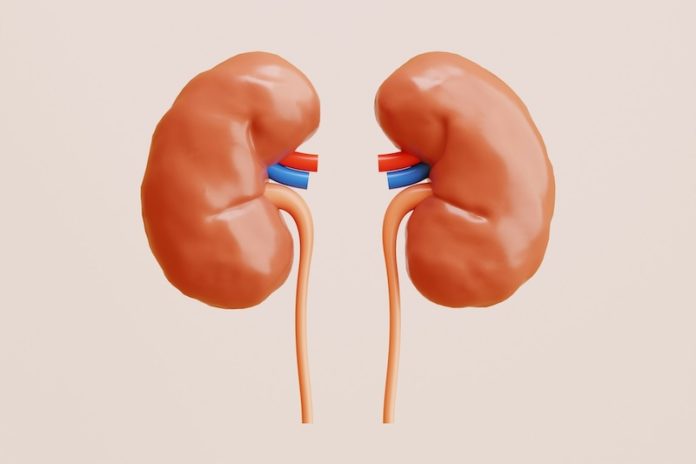
Chronic kidney disease (CKD) is a condition where the kidneys gradually lose their ability to function properly over time.
This can lead to waste buildup in the body, causing various health problems. CKD affects millions of people worldwide and understanding its causes is crucial for prevention and treatment.
One of the leading causes of CKD is diabetes, specifically Type 2 diabetes. When blood sugar levels are consistently high, they can damage the blood vessels in the kidneys, impairing their ability to filter waste.
Research has shown that about one-third of adults with diabetes develop CKD. This highlights the importance of managing blood sugar levels through diet, exercise, and medication.
High blood pressure, or hypertension, is another major cause of CKD. The kidneys are full of tiny blood vessels that can be damaged by the constant pressure of high blood pressure. This damage can reduce the kidneys’ ability to filter waste effectively.
Studies have found that around 25% of CKD cases are due to hypertension. Controlling blood pressure through lifestyle changes and medication can significantly reduce the risk of developing CKD.
Certain infections can also lead to CKD. One such infection is glomerulonephritis, which causes inflammation in the kidney’s filtering units called glomeruli. This inflammation can be triggered by various factors, including infections, autoimmune diseases, and certain medications.
Although less common than diabetes and hypertension, glomerulonephritis can still have a significant impact on kidney function.
Genetics also play a role in the development of CKD. Some people are born with conditions like polycystic kidney disease (PKD), where clusters of cysts develop in the kidneys, impairing their function over time.
PKD is an inherited disorder, meaning it runs in families. Researchers have identified specific genes associated with PKD, which can help in early diagnosis and management of the disease.
Another contributing factor to CKD is prolonged use of certain medications, particularly nonsteroidal anti-inflammatory drugs (NSAIDs) like ibuprofen and naproxen.
These drugs can reduce blood flow to the kidneys, especially when taken in large doses or over a long period. It’s important to use these medications as directed and consult with a healthcare provider if you have any concerns.
Lifestyle factors such as smoking, obesity, and poor diet can also increase the risk of CKD. Smoking can harm blood vessels and decrease blood flow to the kidneys, while obesity can lead to diabetes and high blood pressure, both of which are major causes of CKD.
A diet high in salt, sugar, and unhealthy fats can contribute to these risk factors as well. Maintaining a healthy lifestyle with regular exercise, a balanced diet, and avoiding smoking can help reduce the risk of CKD.
Environmental factors, such as exposure to heavy metals like lead and mercury, can also contribute to CKD. These metals can damage the kidneys over time, especially with prolonged exposure.
Occupational exposure to certain chemicals and toxins can also increase the risk, highlighting the importance of safety measures in the workplace.
In addition to these causes, age is a significant risk factor for CKD. The likelihood of developing CKD increases with age, as the kidneys naturally lose some function over time. This makes regular check-ups and monitoring of kidney function important, especially for older adults.
Research continues to explore the various causes of CKD, aiming to improve prevention, diagnosis, and treatment. For example, recent studies have investigated the role of gut health in CKD, suggesting that an imbalance in gut bacteria might contribute to kidney disease. Such findings could lead to new approaches in managing and preventing CKD.
In summary, chronic kidney disease is caused by a variety of factors including diabetes, high blood pressure, infections, genetics, prolonged use of certain medications, lifestyle choices, environmental exposures, and age.
Understanding these causes can help in the prevention and management of CKD, improving the quality of life for those affected. By maintaining a healthy lifestyle, managing existing health conditions, and staying informed about kidney health, individuals can reduce their risk of developing this chronic condition.
If you care about kidney health, please read studies about how to protect your kidneys from diabetes, and drinking coffee could help reduce risk of kidney injury.
For more information about kidney health, please see recent studies about foods that may prevent recurrence of kidney stones, and eating nuts linked to lower risk of chronic kidney disease and death.
Copyright © 2024 Knowridge Science Report. All rights reserved.



